Premium Only Content
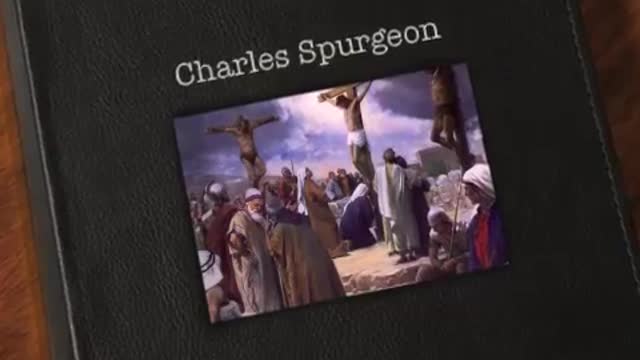
Morning and Evening October 23rd Luke 22:46 John 6:67
Morning
"Will ye also go away?"
John 6:67
Many have forsaken Christ, and have walked no more with him; but what reason have you to make a change? Has there been any reason for it in the past? Has not Jesus proved himself all-sufficient? He appeals to you this morning--"Have I been a wilderness unto you?" When your soul has simply trusted Jesus, have you ever been confounded? Have you not up till now found your Lord to be a compassionate and generous friend to you, and has not simple faith in him given you all the peace your spirit could desire? Can you so much as dream of a better friend than he has been to you? Then change not the old and tried for new and false. As for the present, can that compel you to leave Christ? When we are hard beset with this world, or with the severer trials within the Church, we find it a most blessed thing to pillow our head upon the bosom of our Saviour. This is the joy we have today that we are saved in him; and if this joy be satisfying, wherefore should we think of changing? Who barters gold for dross? We will not forswear the sun till we find a better light, nor leave our Lord until a brighter lover shall appear; and, since this can never be, we will hold him with a grasp immortal, and bind his name as a seal upon our arm. As for the future, can you suggest anything which can arise that shall render it necessary for you to mutiny, or desert the old flag to serve under another captain? We think not. If life be long--he changes not. If we are poor, what better than to have Christ who can make us rich? When we are sick, what more do we want than Jesus to make our bed in our sickness? When we die, is it not written that "neither death, nor life, nor things present, nor things to come, shall be able to separate us from the love of God, which is in Christ Jesus our Lord!" We say with Peter, "Lord, to whom shall we go?"
Evening
"Why sleep ye? rise and pray, lest ye enter into temptation."
Luke 22:46
When is the Christian most liable to sleep? Is it not when his temporal circumstances are prosperous? Have you not found it so? When you had daily troubles to take to the throne of grace, were you not more wakeful than you are now? Easy roads make sleepy travellers. Another dangerous time is when all goes pleasantly in spiritual matters. Christian went not to sleep when lions were in the way, or when he was wading through the river, or when fighting with Apollyon, but when he had climbed half way up the Hill Difficulty, and came to a delightful arbour, he sat down, and forthwith fell asleep, to his great sorrow and loss. The enchanted ground is a place of balmy breezes, laden with fragrant odours and soft influences, all tending to lull pilgrims to sleep. Remember Bunyan's description: "Then they came to an arbour, warm, and promising much refreshing to the weary pilgrims; for it was finely wrought above head, beautified with greens, and furnished with benches and settles. It had also in it a soft couch, where the weary might lean." "The arbour was called the Slothful's Friend, and was made on purpose to allure, if it might be, some of the pilgrims to take up their rest there when weary." Depend upon it, it is in easy places that men shut their eyes and wander into the dreamy land of forgetfulness. Old Erskine wisely remarked, "I like a roaring devil better than a sleeping devil." There is no temptation half so dangerous as not being tempted. The distressed soul does not sleep; it is after we enter into peaceful confidence and full assurance that we are in danger of slumbering. The disciples fell asleep after they had seen Jesus transfigured on the mountain top. Take heed, joyous Christian, good frames are near neighbours to temptations: be as happy as you will, only be watchful.
===
Charles Haddon (C.H.) Spurgeon (19 June 1834 -- 31 January 1892) was a British Particular Baptist preacher who remains highly influential among Christians of different denominations, among whom he is still known as the "Prince of Preachers". He was a strong figure in the Reformed Baptist tradition, defending the Church in agreement with the 1689 London Baptist Confession of Faith understanding, and opposing the liberal and pragmatic theological tendencies in the Church of his day.
Spurgeon was a prolific author of many types of works including sermons, an autobiography, commentaries, books on prayer, devotionals, magazines, poetry, hymns and more.Many sermons were transcribed as he spoke and were translated into many languages during his lifetime. Spurgeon produced powerful sermons of penetrating thought and precise exposition. His oratory skills held throngs of listeners spellbound in the Metropolitan Tabernacle and many Christians have discovered Spurgeon's messages to be among the best in Christian literature.
http://conservativeweasel.blogspot.com/2011/10/daily-devotional-monday-24th-october.html
AUAWN1024111
-
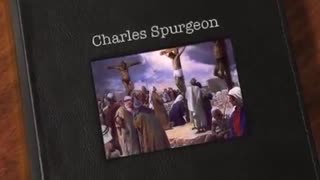 4:01
4:01
Morning and Evening from Spurgeon
3 years agoMorning and Evening December 26th Matthew 28:20 1 Corinthians 15:45
418 -
 4:15
4:15
Morning and Evening from Spurgeon
3 years agoMorning and Evening October 21st Luke 24:38 2 Corinthians 5:14
113 -
 4:33
4:33
Morning and Evening from Spurgeon
3 years agoMorning and Evening October 22nd John 16:15 Hosea 14:4
146 -
 4:04
4:04
Morning and Evening from Spurgeon
3 years agoMorning and Evening October 16th Psalm 36:9 John 21:12
1391 -
 4:24
4:24
Morning and Evening from Spurgeon
3 years agoMorning and Evening October 8th Jude 20 Luke 5:4
212 -
 4:25
4:25
Morning and Evening from Spurgeon
3 years agoMorning and Evening October 6th Numbers 12:1 John 4:14
113 -
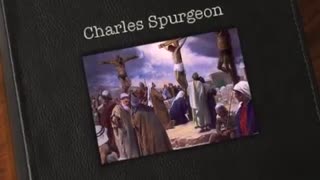 4:54
4:54
Morning and Evening from Spurgeon
3 years ago $0.01 earnedMorning and Evening October 4th 1 John 2:1 Zechariah 14:7
152 -
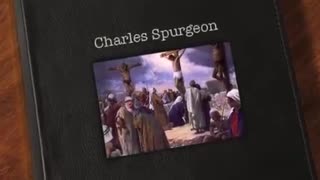 4:20
4:20
Morning and Evening from Spurgeon
3 years agoMorning and Evening October 20th Isaiah 43:6 Ephesians 4:15
1001 -
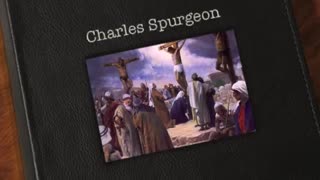 4:12
4:12
Morning and Evening from Spurgeon
3 years agoMorning and Evening October 19th Job 35:10 1 Corinthians 3:1
851 -
 4:08
4:08
Morning and Evening from Spurgeon
3 years agoMorning and Evening October 18th 1 Samuel 15:22 Psalm 65:11
1003